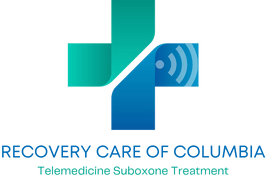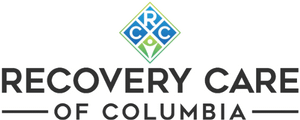Columbia Suboxone Clinic Blog
Addiction and Diabetes: Understanding Chronic Diseases in Tennessee
When it comes to long-term health, addiction and diabetes are chronic diseases that share more similarities than most people realize. Both require consistent medical care, behavioral change, and ongoing management. Both can lead to serious consequences if left untreated — even death.
At Recovery Care of Columbia, we’ve helped more than 1,000 people across Tennessee manage opioid addiction through compassionate, evidence-based care. Like diabetes, addiction is not a moral failure — it’s a chronic illness that requires medical treatment, counseling, and support.
Why Addiction and Diabetes Are Chronic Diseases
Chronic diseases are long-term medical conditions that can be controlled but not necessarily cured. According to the Centers for Disease Control and Prevention (CDC.gov), chronic diseases often require ongoing treatment, lifestyle changes, and support to maintain stability.
Addiction fits this definition perfectly. Once substance use alters brain chemistry, it becomes a chronic condition that needs structured management — just like diabetes.
Key Similarities Between Addiction and Diabetes
-
Both require ongoing medical care: Diabetes needs insulin management; addiction recovery often requires Suboxone (buprenorphine/naloxone) and therapy.
-
Both are influenced by behavior and biology: Genetics, environment, and stress play major roles.
-
Both can lead to life-threatening complications: Without treatment, diabetes can cause organ failure, and opioid addiction can cause fatal overdose, according to the FDA.gov and SAMHSA.gov.
-
Both require education and support: Patients need to understand their disease and how to manage it daily.
Recognizing addiction as a chronic disease helps remove the stigma and shame often attached to seeking help.
Addiction as a Chronic Illness: The Science
According to the National Institute on Drug Abuse (NIDA.gov), addiction changes the brain’s structure and function, particularly in areas that control judgment, decision-making, and self-control. This is similar to how diabetes affects how the body regulates insulin and blood sugar.
Addiction is a relapsing, chronic disease — not a lack of willpower. That’s why effective treatment involves medication, counseling, and support — the same way diabetes management involves medical and lifestyle interventions.
Chronic Illness Framework
At Recovery Care of Columbia, we treat addiction using a chronic-care model:
-
Diagnosis – Understanding your history and current needs.
-
Medical treatment – Prescribing Suboxone to control withdrawal and cravings.
-
Behavioral support – Counseling with master’s-level therapists.
-
Ongoing monitoring – Regular telehealth check-ins to ensure stability.
This long-term, whole-person approach improves outcomes and reduces relapse risk.
Telemedicine: Making Chronic Care Easier for Tennesseans
Our TeleMAT (Telemedicine Medication-Assisted Treatment) program allows patients to receive care from anywhere in Tennessee — from Braden to Elizabethton, Gates, Harriman, or Oakdale.
Benefits of Virtual Addiction Care
-
No clinic visits required: 100% online care.
-
Same-day Suboxone prescriptions: Sent to your pharmacy or delivered overnight.
-
Affordable and accessible: Covered by TennCare Medicaid, Ambetter, and commercial insurance.
-
Private and convenient: Perfect for working adults or parents.
-
Personalized treatment: Every patient’s recovery plan is tailored to their unique situation.
You can register for treatment online and begin recovery today.
Managing Addiction and Diabetes: A Dual Challenge
Many people struggle with both diabetes and addiction — especially those who began using opioids for chronic pain. Long-term opioid use can disrupt metabolism, while poor diet and stress can worsen both conditions.
Strategies for Managing Both Conditions
-
Coordinate medical care: Inform both your addiction provider and primary care physician.
-
Use Suboxone safely: It stabilizes cravings without affecting blood sugar levels.
-
Track blood sugar regularly: Addiction recovery can alter appetite and sleep patterns.
-
Engage in counseling: Address emotional triggers that affect both recovery and self-care.
-
Adopt small, sustainable lifestyle changes: Regular meals, hydration, and sleep support overall wellness.
Our providers understand the overlap between these illnesses — because they treat patients facing both challenges every day.
The Seriousness of Opioid Addiction
Opioid addiction remains one of the leading causes of preventable death in America. According to the DEA.gov, fentanyl and other synthetic opioids are responsible for the majority of overdoses.
Without treatment, opioid addiction can lead to:
-
Respiratory depression and overdose
-
Legal and financial consequences
-
Relationship and family strain
-
Chronic physical health decline
But with Suboxone treatment, patients can stop using opioids safely and start living normal, productive lives again.
Why Choose Recovery Care of Columbia
Recovery Care of Columbia is more than a Suboxone clinic — it’s a compassionate, accredited recovery center built by people who have lived through addiction themselves.
We are:
-
Accredited by The Joint Commission
-
The first virtual addiction treatment clinic licensed in Tennessee
-
Trusted by over 1,000 Tennesseans
-
Staffed by master’s-level counselors
-
Recognized for over 100 five-star reviews on Google
Meet our team and experience the kindness and respect that define our care model.
How to Start Treatment
Starting recovery is simple, fast, and completely virtual.
-
Register for your appointment:
-
Meet with your provider online.
-
Receive your Suboxone prescription the same day.
-
Begin counseling and long-term recovery.
We also offer a Sliding-Scale Program for patients with financial hardship.
Frequently Asked Questions (FAQ)
Q: Are addiction and diabetes really both chronic diseases?
A: Yes. Both are lifelong medical conditions that require consistent management, medication, and behavioral change.
Q: How can Suboxone help with chronic addiction?
A: Suboxone stabilizes brain chemistry, reduces cravings, and allows people to focus on rebuilding their lives.
Q: Can I get Suboxone online in Tennessee?
A: Yes. Our telemedicine program allows you to meet virtually and receive prescriptions the same day.
Q: What if I have both diabetes and addiction?
A: Our team understands the overlap and can coordinate care to help you manage both safely.
Q: What insurance plans do you accept?
A: We accept TennCare Medicaid, Ambetter, and most commercial insurance plans.
Q: How do I start?
A: Call or text (931) 548-3062, or message us securely through the Spruce Health mobile app.
The Keys to Lifelong Recovery
Just like diabetes management, addiction recovery requires commitment, structure, and compassion. At Recovery Care of Columbia, we combine Suboxone, counseling, and telemedicine convenience to make recovery possible for anyone willing to take that first step.
Our mission is simple: to help Tennesseans recover with dignity, one person at a time.
Don’t Wait – Start Treatment Today
Recovery Care of Columbia is Joint Commission-accredited. Read our over 100 Google reviews from real patients.
- Register using your TennCare Medicaid
- Register with commercial/employer insurance
- Register as a self-pay patient (make payments)
- Are you a returning patient? Restart your treatment
- No insurance? Limited income? Apply for our Sliding-Scale Program
- We accept most commercial/employee health plans, such as BCBS, Cigna, Ambetter, and United Healthcare, as well as all TennCare Medicaid insurance: Amerigroup Community Care, BlueCare, United Healthcare Community Plan, and Wellpoint Community Care.
- View all insurance plans we accept and self-pay payment pricing
- Learn more about Kratom & 7-OH Addiction Treatment
External Resources
- Substance Abuse and Mental Health Services Administration (SAMHSA)
- National Center on Substance Abuse and Child Welfare
- Centers for Disease Control and Prevention | CDC.gov
- Locate a Peer Recovery Support Specialist
- DEA.gov – Opioid Addiction-Related Articles
- National Institute on Drug Abuse
Online Suboxone Treatment Across Tennessee



